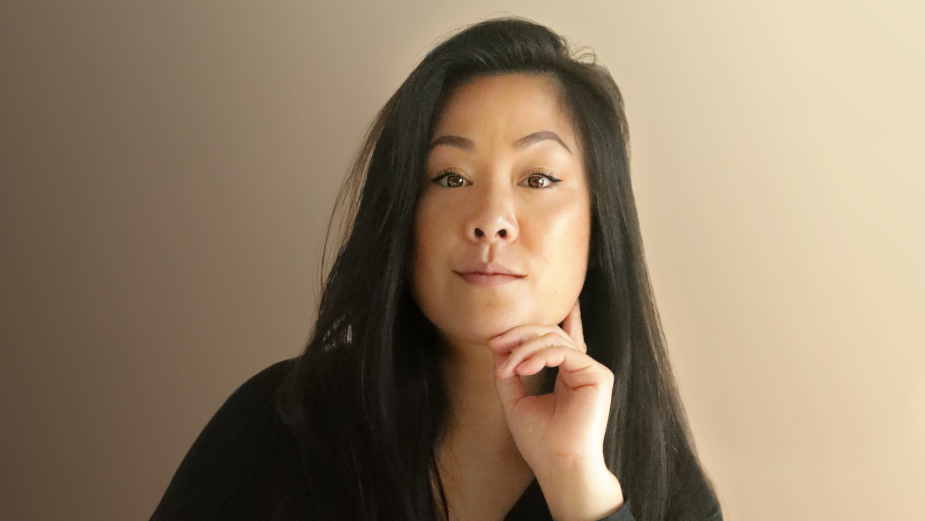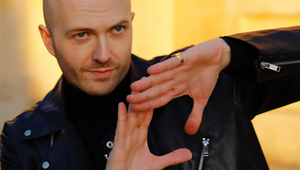
Erica Eng: “As a Director, It’s My Responsibility to Represent People Who Look Like Me”

There’s no set path to becoming a director. For Great Guns’ Erica Eng, it began with an interest in photography that was encouraged by her father. It was in high school that a teacher first suggested the idea of filmmaking, and since then there’s been no looking back.
Looking through Erica’s work to date, it quickly becomes apparent that brands and audiences alike should be thanking that teacher. Her work with the fast food giant Panda Express stands as a testament to the power of multiculturalism and acceptance, whilst her short film Americanized tackles the soulful journey of a girl balancing her two national identities: Chinese and American.
If there’s a theme of cultural identity and exploration within Erica’s career to date, it’s very much intentional. To reflect on her unique journey through the industry so far, and why she is driven to tell stories which explore culture and belonging through film, Erica spoke to LBB…
Q> Growing up, was it always your plan to become a director, or involved with film in some way?
Erica> Like any other kid, growing up I had no idea what I wanted to do for a career. School was hard for me because I would daydream a lot and I had difficulty learning through lectures and reading assignments. My father introduced me to photography and it helped me realise that my mind becomes alive when I’m doing something visual or working with my hands. I took a liking to animation when my high school computer teacher suggested that I should learn filmmaking and I remember my reaction was “no, that’s impossible…” - but after I got my first internship at a local TV station, I fell in love! I was then recruited to a program in Oakland called “Youth Sounds” and my mentors there encouraged me to direct a film which won at the San Francisco International Film Festival with a prize of $5,000 USD. As a student, that helped give me the confidence to realise that I can make films as a career and I used that money to buy camera and sound equipment to begin making my own projects.
Q> Your recent spot for Panda Express is a wonderful story of cross-cultural connection and you helped write the story and expand the characters, inspired by your own Chinese heritage. What was the process like bringing your personal experiences to the story?
Erica Eng> So much fun! I’ve always wanted to direct a commercial for the Lunar New Year, so when the opportunity came up with Panda Express, I was extremely excited to showcase my culture. The story is about an American boy who learns about the Lunar New Year holiday through his Chinese neighbour. As a fifth-generation Chinese American, I come from a unique perspective because I understand what the Lunar New Year holiday looks, smells, and feels like from the perspective of being Chinese, but I also grew up very American so I’m constantly learning more about my culture (like our main character). I peppered memories of my family throughout the scenes – like a grandmother cooking with chopsticks in a wok, or a little girl playing with a lion dancing puppet (something I did as a kid). Inserting these small easter eggs of authenticity is what made this story feel real and personal. Both Panda Express and I wanted to hone in on the most realistic portrayal of the holiday that we could, so it was very special to me that I was able to interweave memories of my own family within the film.
Q> Maintaining this cultural authenticity was key to the film. What does authenticity mean to you, not only in regards to this spot, but for your approach to work in general?
Erica> Representation is really important to me. I know that every time I step on set as a director, I represent people who look like me, and I carry that responsibility proudly. For Panda Express in particular, it meant supporting Asian American representation on and off the screen. I advocated for hiring Chinese Americans in roles that mattered to maintain the cultural accuracy of the campaign, like a Chinese American production designer and food stylist to ensure the authenticity of the environment and food. It was touching seeing how many talented Asian American creatives worked together on this project. From people like our line producer, wardrobe stylist, editor, and music composer, among others – I’ve had many people say how special it was that we have the opportunity to tell a story that truly depicted the Asian American experience within the commercial industry. Each of us had such a great sense of pride putting this film together because it meant that our culture was going to be seen and appreciated on a global scale.
Behind the scenes on Erica’s Panda Express spot (first image), and Americanized (following images, credit to Pete Lee)
Q> Congratulations on Americanized! How does it feel to have the film finally out on the awards circuit after working on it for over two years?
Erica> Relieved! It’s hard to watch something that you’ve worked on for the past two years and be objective. But I’m glad that it’s finally finished and being well-received by audiences. We had our World Premiere at Cinequest Film Festival back in March and won the “Audience Choice Award” and “Best Drama Short” so we’re now Oscar-Qualified. We’ve finished playing at the Atlanta Film Festival, and next we’re playing Palm Springs International ShortFest on June 26th! We’re just beginning our festival run and it’s incredible to see the outpour of support.
Q> How did it feel to work on not only your first narrative film, but one that was so deeply personal?
Erica> Very difficult. The story is based on myself and my memories of being a teenager so, as a first-time screenwriter, I had a difficult time looking at the story and characters objectively. I couldn’t embarrass the main character or make her look bad because I would stop and think - “I didn’t do that” or “I’m not like that.” But eventually, I learned to take myself out of the story and write from the perspective of these fictional characters, and I became a stronger writer through the experience.
Q> You’ve said that the film exemplifies your identity as a filmmaker and the types of stories you want to tell. Can you expand on this a little?
Erica> The stories I tell are inspired by my experiences growing up in Oakland, and feeling like an outcast. Oakland is a diverse multicultural city and I went to high school where white kids were the minority and representing cultural pride made you popular. But growing up, I didn’t feel culturally Chinese. My great-grandfather was born in California and my roots are in the bay area – so that was the culture I understood. But kids at my school would be like ‘what does your family eat? Do you even own a rice cooker?’. I just felt lost.
As I grew older, I understood what gave me a sense of cultural pride within my Chinese heritage and I was able to dissect this feeling of wanting to be accepted. So, through the lens of analysing my own cultural identity, I began creating films that explore cross-cultural relationships, utilising universal themes of acceptance and self-discovery.
Q> Your career has seen you work alongside some major figures in the industry, notably as executive assistant to Michael Mann. Did these experiences shape how you approach your work now?
Erica> I was directing years before I was working for Michael Mann, but one anecdote I can share is this: I was putting together a collection of images for a presentation and Michael was standing over my shoulder as I was colour correcting a few. He kept pushing the colour more and more, and after we finally landed in a good place he said to me “I need to FEEL the color” – and that stuck with me. It’s one thing to “like” something, and another to “feel” something. It made me realise that as creative people, we have this internal barometer that measures our individual artistic taste. It helped me realise that as a director, I need to keep trusting my gut regardless of what others say.
Q> What does the future look like for you? How are you hoping to develop your work in the years ahead?
Erica> It’s great to see how my career in commercials has shifted since Panda Express. It exemplifies the type of commercials that I enjoy creating – which are narrative-driven stories with a docu-style visual feel. But I also enjoy doing fun shoots like the Virginia Lottery commercial that just released recently, and I directed the second season of Facebook’s “Boost My Business” with Tan France that will be releasing this summer along with a Merrill Lynch campaign.
On top of this, I’m the type of person who likes to grow in all aspects of the industry so I’m continuing to build my narrative career alongside my commercial career. I’ve been writing a lot more lately and I have another short film and two features that I’m developing. I’ve grown so much as a writer since “Americanized” so I’m really excited to develop my own stories and share all this new work with you!















